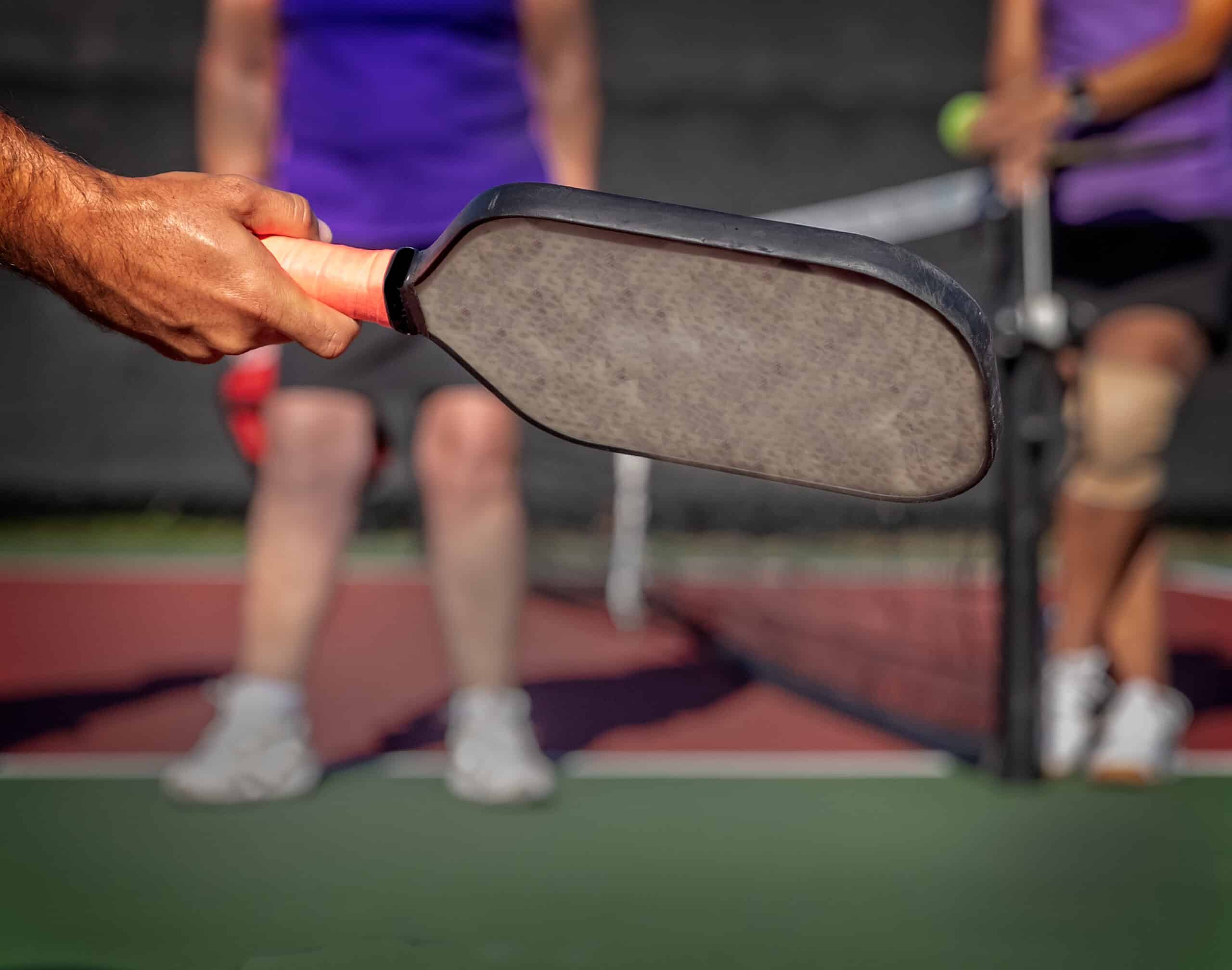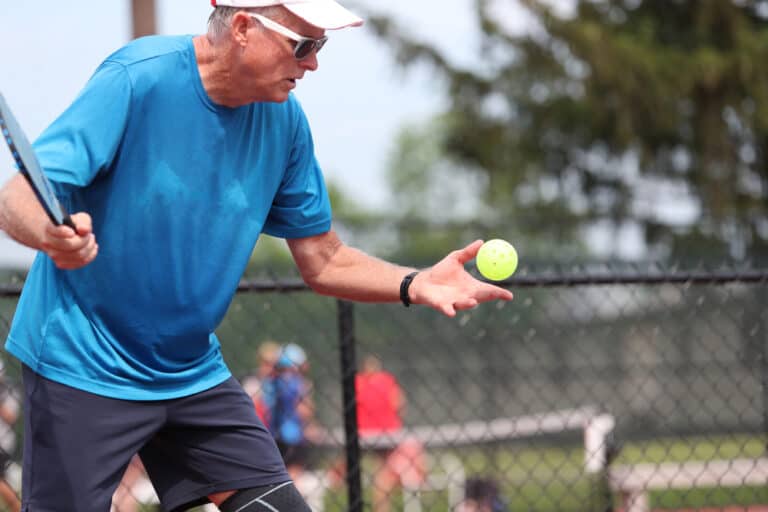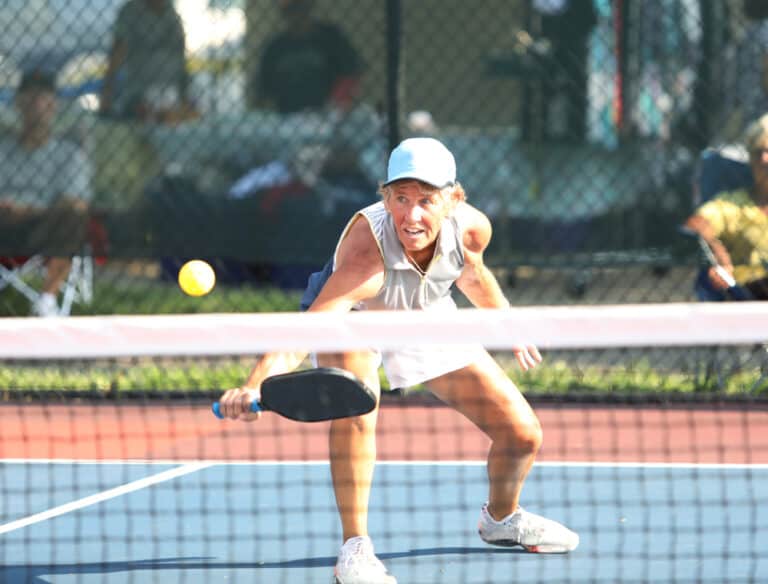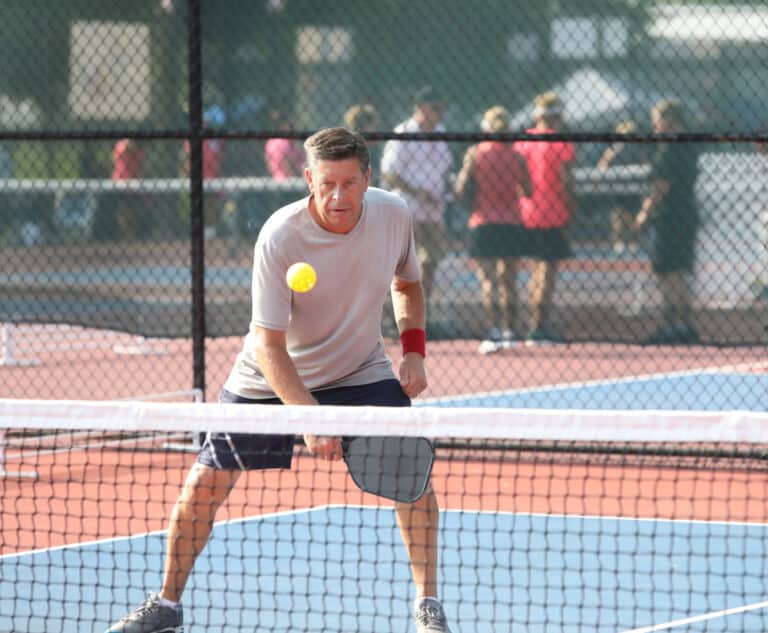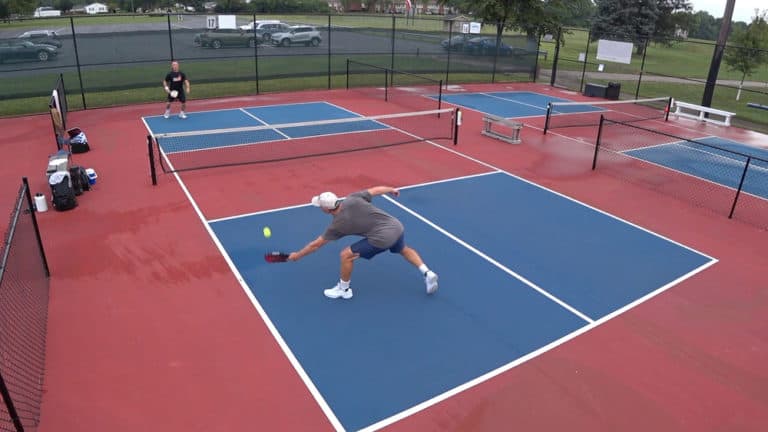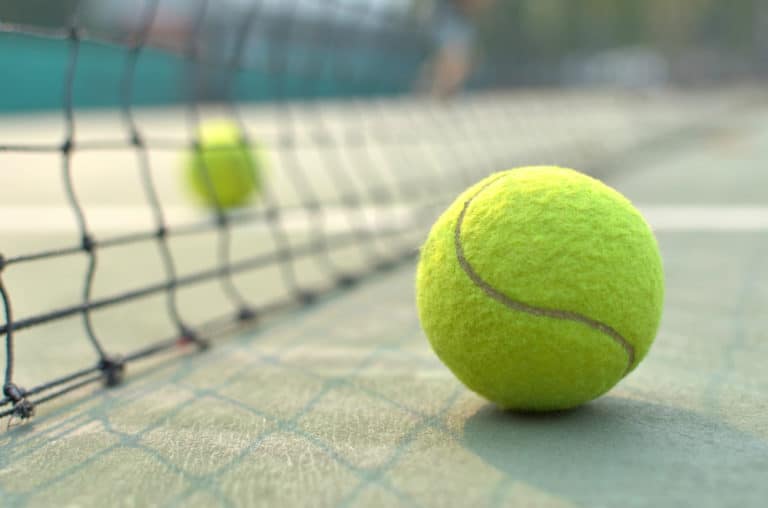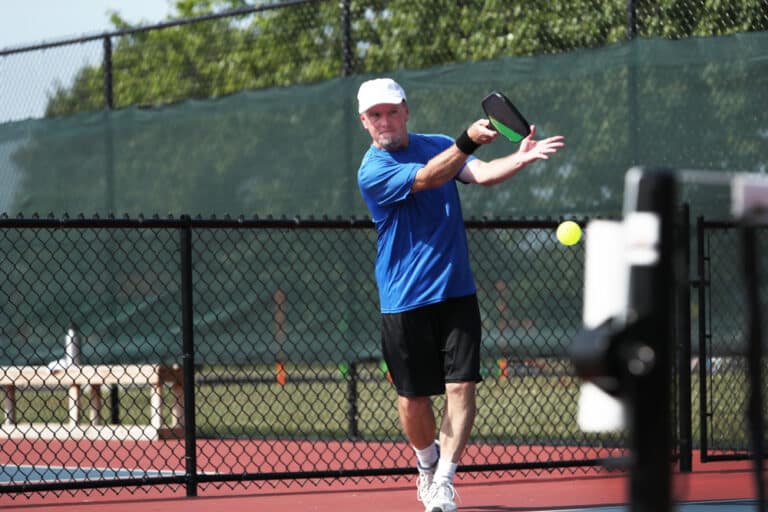What Happens If You Drop Your Paddle In Pickleball?
You have just started playing Pickleball, and you may be familiar with all the basic playing rules, but not the technical regulations. As a beginner, have you ever wondered what happens if your paddle breaks or if you accidentally drop your paddle onto the court?
Dropping the paddle in Pickleball can be a fault or no fault depending on where the paddle lands. If the paddle lands on your side of the court, it is not a fault. If the paddle lands on the opponent’s side of the court, in the Non-Volley Zone, or touches the net or net post, it is a fault.
So, what happens if you drop your paddle in Pickleball? What do the rules state about this? Will a mistake or accident like this (intentional or unintentional) cause serious negative consequences for my team?
What Happens If One Drops A Paddle In Pickleball?
Nothing happens if you drop the paddle accidentally on your side of the court. It does not constitute a fault, and you may continue with play. If the paddle falls on your opponent’s side of the court or lands in the Non-Volley Zone (also known as the kitchen) as a result of a volley, it is a fault, and you either lose your service or your opponent gets the point if they were the serving team.
What Are The Consequences Of Dropping A Paddle?
The rules state that if you or your team start the service and accidentally drop your paddle, play may continue if the paddle lands on your side of the court, and you will not lose a point for dropping the paddle. If you drop the paddle and it lands on your opponent’s side of the court, it is a fault, and you lose your service. Your team will then lose the advantage of scoring a point.
Similarly, if the paddle lands in the Non-Volley Zone or Kitchen during a volley, it is a fault, and if you or your team are the serving team, you either lose your advantage of scoring a point or your opponents score an issue if they are the serving team.
Bear in mind that it would only be a fault if the lost paddle lands in the Non-Volley Zone during a volley. If the paddle lands in the Non-Volley Zone other than a volley, it is not considered a fault.
What Happens If The Paddle Breaks And Drops?
Should the paddle drop because of a broken handle, the rally may continue, provided the paddle lands on your side of the court. It is a fault if the broken paddle lands in the Non-Volley Zone during a volley. The common faults that can occur with a broken paddle include the following:
- If the handle breaks while serving and the paddle lands in the Non-Volley Zone and the ball has not bounced, a Non-Volley Zone fault occurs.
- A fault can also occur if the broken paddle lands on the Pickleball net, the net post, or on the opponents’ side of the court.
- It is a fault if the broken paddle causes a distraction to your opponents if they are about to strike the Pickleball.
If your paddle breaks during play and falls on your side of the court, stay focused and keep on playing unless, for any reason, a fault has been called.
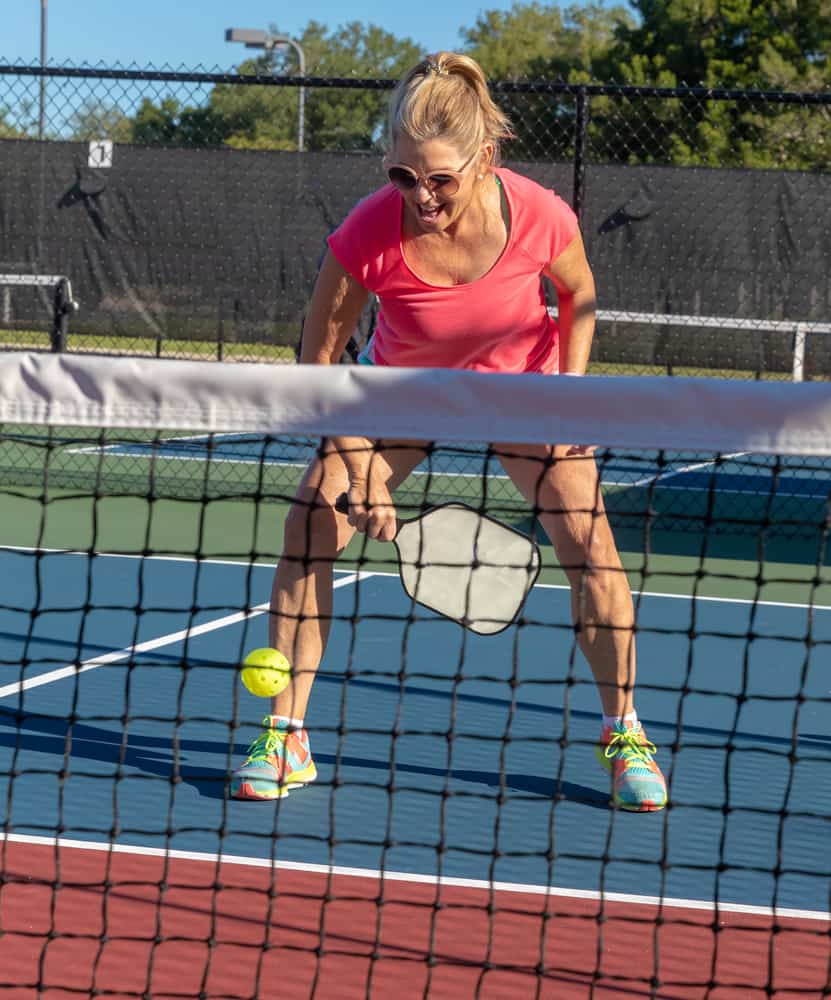
What Causes You To Drop Your Paddle In Pickleball?
Many experienced players agree that an incorrect grip on the paddle may be the most significant cause for dropping your paddle. Paddles come in different shapes, sizes, and weights. Consequently, the handle grips can also vary in length and thickness.
There are different grips in Pickleball, and the most common grips are known as the continental grip, the western forearm grip, the eastern forearm grip, and the ping pong grip. Some players may use more than one type of grip during play. However, there may be a possibility of dropping the paddle if you change a particular grip to another grip during play.
When the grip is either too thick or too narrow for your hand, your hand becomes tired and sweaty, and the paddle can drop out of your hand. A tight grip can cause tension in your arm and shoulder and affects your natural ability to swing the paddle, which makes it challenging to hit soft shots. If the pressure on the grip becomes too much, you can lose your grip on the paddle, which may drop, causing a fault or a loss of serve.
Incorrect grip size is another common cause of dropping the paddle. If the paddle size is not suitable for your hand, there is a good chance that you can place strain and tension on your hand and arm, which may lead to you dropping the paddle when your hand or arm gets tired. Always choose a grip that feels comfortable in your hand and allows you to play with maximum control.
Similarly, if the paddle weight is not suitable for your hand or style of play, you may experience problems controlling the paddle during play and even drop the paddle, causing a fault or loss of serve.
Your hand is the only connection to the pickleball paddle, and it is essential to ensure that you have a comfortable paddle in your hand and suitable to your style of playing. A right paddle for your hand and playing style gives you more power and control and lessens the chance of dropping it on the court while playing.
Conclusion
The paddle is the most critical piece of equipment used in Pickleball. It is the only object that you can use to hit the ball. It is, therefore, essential to have a paddle that suits your hand and your style of playing.
If the paddle is too heavy or the grip is too thick for your hand, the chances of losing control become increasingly possible, and you can easily make a mistake or even drop the paddle.
If you stay in control of the paddle, you can control your shots and avoid losing your paddle, which may cause your team to lose a service or give your opponents a point. However, unavoidable and unintentional accidents can happen, like the breaking of the paddle. If this happens, stay focused and continue to play unless a fault has occurred.
References
- https://www.cranberrytownship.org/2607/General-Rules-of-the-Game-of-Pickleball
- https://www.forbes.com/health/body/what-is-pickleball/
- https://en.wikipedia.org/wiki/Pickleball
- https://usapickleball.org/what-is-pickleball/official-rules/rules-summary/
- https://www.desertsun.com/story/sports/2022/03/04/pickleball-rules-and-misunderstandings-serves-faults-kitchen/9368019002/
- https://www.youtube.com/watch?v=RF5RyCh7GNc
